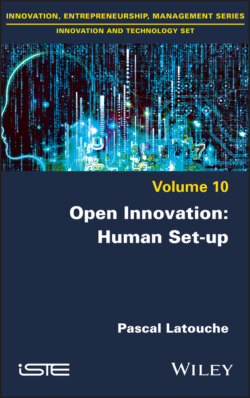Читать книгу Open Innovation - Pascal Latouche - Страница 20
1.1.1. Parents-warrior
ОглавлениеWith a driving license obtained during his time in the army (military service), his father started earning his money as his brother-in-law’s “apprentice”, a small plantation owner who had demonstrated Caribbean customary solidarity by hiring him. He was indeed a handyman. At that time in the West Indies, there was nothing extraordinary about hiring the youngest of the family. In short, it was an approach that we would readily describe today as a form of economic “mentoring” aimed at giving people “smaller” than ourselves the chance to earn a few pennies in exchange for a variety of services. With money in his pocket and access to credit in the West Indies, his father was able to buy his own truck. For G2J’s father, this was the beginning of an “entrepreneurial” adventure: he then became what we could call today a craftsman – a transporter. To get around these islands, you should know – and this is still true today – that there were only roads. G2J’s father answered – is there a need? I guess so. Goods, such as bananas, needed people to get them from one point to another. Note that his father was an innovator, because he was the first to have the idea of transporting racing skiffs from one side of the island to the other via his truck, as it is recounted in Mr. Castandet’s book on the history of skiffs in Martinique. G2J lost his father at the age of 9. May he rest in peace, and if it is true that there is something beyond, then no doubt he will meet mine.
As for G2J’s mother, orphaned at 14, she trained to become a teacher. She passed on the knowledge she had acquired to the children. From G2J, I got a lot less detail about his mother’s life. I think I noticed this phrase more than once: “My mother was a fighter!”. I deliberately didn’t dig any further. The place of women in some cultures is important. It is not only her vocation to give birth to children and to be the “wife”. It is above all she who takes on a statutory role in the home, who educates, disciplines or not, keeps accounts. In short, whether you are a husband or a child, it is in your best interest to make an ally out of her, otherwise you will no longer have the affection you have longed for.
As I was listening to G2J, I realized that a singularity was emerging. The parental couple as such. Imagine that you want to build a house, it collapses a few days before it is finished. G2J told me that rather than attacking the craftsmen, her parents simply decided to rebuild it without asking more questions than that. This seemed very strange to me, because we could have imagined this couple in a process that would have consisted at least in implementing actions against the craftsman, while rebuilding. In retrospect, is it any wonder? For months, you watched your house rise up out of the ground. A certain sympathy has inevitably developed with your craftsman. I imagine that the failure of the project (the collapse of the house) becomes a collective failure because you took part in this construction. You assume the result. It is only long after I understood this philosophy that characterizes G2J: never get lost in useless fights and take the events upon yourself as soon as you have taken part in them.
You’re not born with a philosophy of life. It’s being constructed. I wanted to know how G2J was constructed and of course, if it passes through the family home, it also passes through social relationships. For a child, school is a melting pot of social relationships. From that point of view, it seems today that G2J has not had any luck…. But it has nothing to do with luck.
